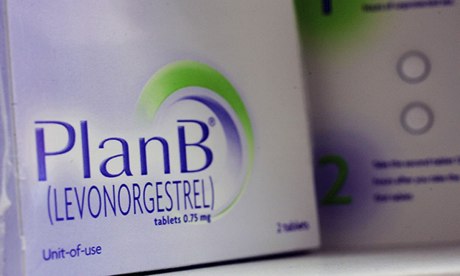Educating young men could expand ‘morning after pill’ use
Young men know even less about emergency contraception than young women do, which may be limiting access to an effective means of preventing unwanted pregnancies, researchers say.
“The big finding in our study is that young men had a lot less knowledge about emergency contraception than the young women that we surveyed, and even among the young women, knowledge wasn’t great,” Sheree Schrager, a member of the study team, told Reuters Health.
“About half of the women understood basic facts about emergency contraception, how you get it, how you use it, and the fact that male partners were also able to buy it over-the-counter for their female partners,” added Schrager, a researcher at Children’s Hospital Los Angeles, California.
“But young men had significantly lower knowledge then the young women did, and this is an opportunity for providers to reach out to young men in the hopes of reaching more young women to use emergency contraception,” she said.
Emergency contraception, sometimes called “the morning after pill,” prevents pregnancy after unprotected sex or when barrier methods of contraception fail. Currently, nine U.S. states allow pharmacists to dispense emergency contraception without a prescription under certain conditions, according to the Guttmacher Institute.
Unplanned pregnancies happen at higher rates in poor communities, and their health and economic consequences may be greater, the researchers write in The Journal of Family Planning and Reproductive Health Care.
Levonorgestrel (Plan B) has been the primary agent used for emergency contraception since its introduction in 2000, they note. But it’s promise for preventing up to half of unwanted pregnancies has gone unfulfilled, in part because of lack of knowledge and access to the drug.
Emergency contraceptive pills containing both progestin and estrogen (known as “combined” pills) reduce the risk of pregnancy by 75%. In other words, if 100 women use this type of pill after having unprotected sex, only 2 of them will get pregnant. Emergency insertion of a copper-T IUD reduces the risk of pregnancy by more than 99%.
While all of these types of emergency contraceptives are safe and effective, with the exception of the IUD (if used for ongoing contraception), they are not as good at preventing pregnancy as birth control that’s used before or during sex, like the pill or condom. If emergency contraception was the only type of birth control you used for an entire year, your annual risk of getting pregnant would probably be about 20% with progestin-only EC such as Plan B One-Step, Next Choice One Dose, Next Choice, Levonorgestrel Tablets and other progestin-only emergency contraceptive pills and 40% with “combined” emergency contraceptive pills. And that’s assuming you used emergency contraceptive pills perfectly, after each and every time you had unprotected sex. For this reason, health care providers generally recommend that, if you are sexually active, you should try to find a regular method of contraception other than emergency contraception that can work for you. (Find out more about your options here or use this free, interactive online tool or ARHP’s Method Match to help choose the best contraceptive method for you.)
 To gauge how much older teens and young adults know about emergency contraception, the researchers enrolled 101 males and 97 females ages 18 to 25 into the study during 2008 and 2009. The participants were either patients at a free health care clinic in Los Angeles or had received physical screenings as part of their training for the Los Angeles Job Corps.
To gauge how much older teens and young adults know about emergency contraception, the researchers enrolled 101 males and 97 females ages 18 to 25 into the study during 2008 and 2009. The participants were either patients at a free health care clinic in Los Angeles or had received physical screenings as part of their training for the Los Angeles Job Corps.
Most of the participants were Hispanic - about 61 percent. Another 13 percent were White and 16 percent were African American. The remaining 6 percent identified themselves as belonging to “other” ethnic groups. Almost three quarters had not completed high school.
About 36 percent of sexually experienced young women had used emergency contraception previously, while 18 percent of the sexually experienced males had partners who had used it.
The participants answered questionnaires that included items measuring their knowledge of facts about emergency contraception attitudes about using it. Composite scores were determined from the number of correct answers and ranged from 0 to 4.
The women’s average score was 2.85, while the men’s average score was 1.97.
About half the women and a third of the men knew that emergency contraception was available at pharmacies without a prescription.
Only 18 percent of the women and 8 percent of men knew that emergency contraceptives were available to women under the age of 18.